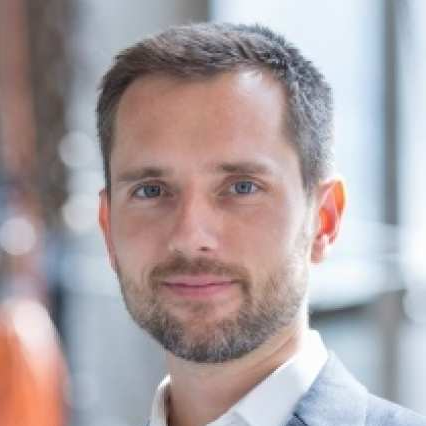PRG Seminar Series
on
Robotics and Computer Vision
Soft Aerial Robotics for Environmental Sensing
Talk will be streaming Live in
Soft Aerial Robotics for Environmental Sensing
Talk will be streaming Live in
Wednesday, December 1, 2021
Time: 11:00 AM
Online
by

|
|
|---|
ABSTRACT
Environmental sensing rely heavily on accurate, timely and complete data sets which are often collected manually at significant risks and costs. Robotics and mobile sensor networks can collect data more effectively and with higher spatial-temporal resolution compared to manual methods while benefiting from expanded operational envelopes and added data collection capabilities. In future, robotics will be an indispensable tool for data collection in complex environments, enabling the digitalization of forests, lakes, off-shore energy systems, cities and the polar environment. However, such future robot solutions will need to operate more flexibly, robustly and efficiently than they do today.
This talk will present how animal-inspired soft robot design methods can integrate adaptive morphologies, functional materials and energy-efficient locomotion principles to enable this new class of environmental robotics. The talk will also include application examples, such as flying robots that can place sensors in forests, aerial-aquatic drones for autonomous water sampling, drones with compliant landing systems for landing on wind turbines, drones for aerial construction and repair, and impact-resilient drones for
safe operations in underground and tunnel systems.
ABOUT THE SPEAKER
Prof. Mirko Kovac is director of the Aerial Robotics Laboratory, full professor at Imperial College London and Royal Society Wolfson Fellow. He is also heading the Materials and Technology Centre of Robotics at the Swiss Federal Laboratories for MaterialsScience and Technology (Empa) in Zürich. His research group focuses on the development of novel, aerial robots for distributed sensing and autonomous manufacturing in complex natural and man-made environments. Prof. Kovac's particular specialization is in robot design, hardware development and multi-modal robot mobility. Before his appointment in London, he was post-doctoral researcher at Harvard University and he obtained his PhD at the Swiss Federal Institute of Technology in Lausanne (EPFL). He received his undergraduate degree in Mechanical Engineering from the Swiss Federal Institute of Technology in Zurich (ETHZ) in 2005. Since 2006, he has presented his work in >70 international proceedings and journals, has won several best paper awards and has delivered >30 keynote lectures. He also regularly acts as advisor to government, investment funds and industry on robotics opportunities.